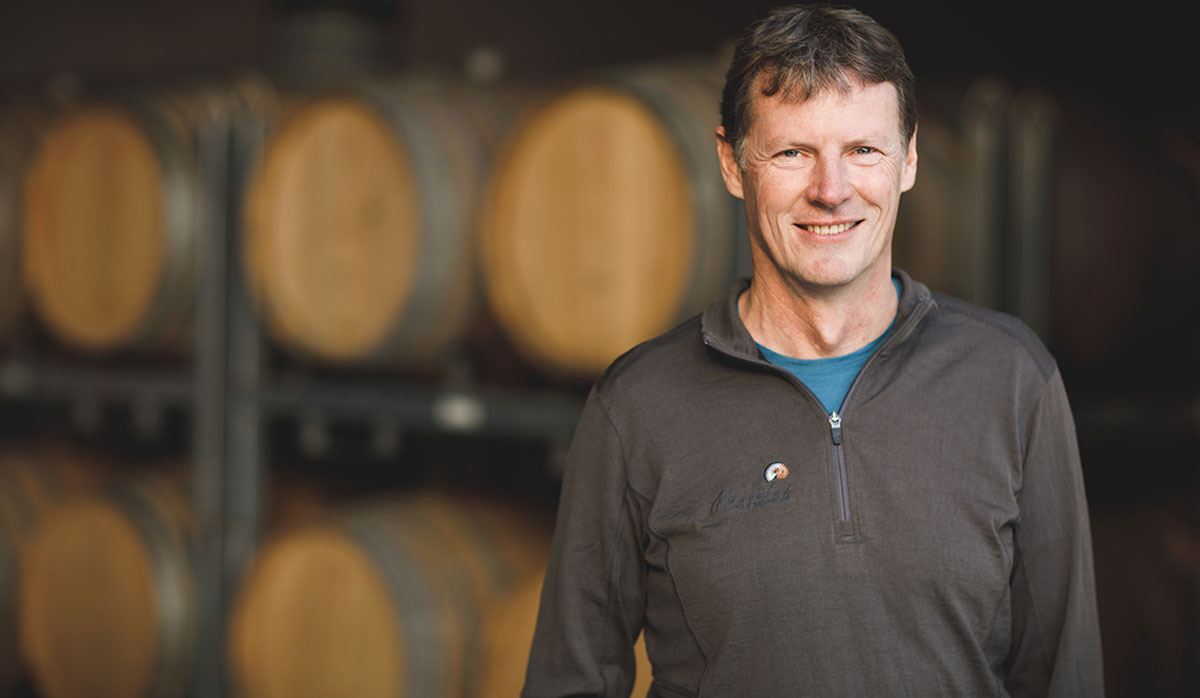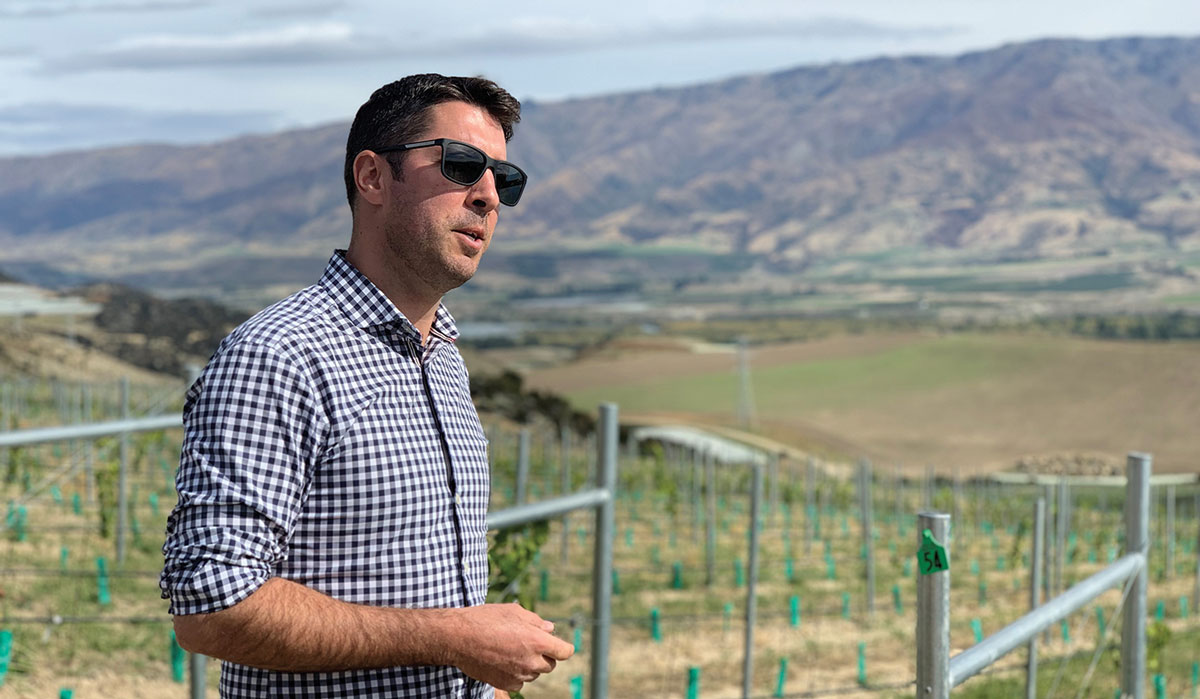Clive Jones Named 2025 NZ Winegrowers Fellow
As a young industrial chemist working in product development, Clive Jones would scan ingredient lists at the supermarket, "interested in what makes this product different from that".
Slow shipping, low yields and labour shortages have made 2021 even more challenging than 2020, says Nautilus General Manager Clive Jones.
Sustained high demand for New Zealand wine, driven by stellar Sauvignon Blanc sales worldwide, has been stymied by sluggish shipping schedules and a short vintage, he says, with national 2021 Sauvignon yields down 18 percent on the previous year.
The combination of limited supply and increased timeline to market has resulted in a change in buying behaviour by distributors, from a steady regular buying pattern over 12 months, to increased frequency of orders early on. That means companies could be further through their allocations than expected, with six months of concentrated ordering depleting stock levels. "If you empty the pipeline, you have to refill it again," he says. "We are starting to think 'okay, how much do we have to make next year?'"
The change in behaviour also means companies are bottling sooner, to get wine on the water. In the past, Nautilus has had the luxury of bottling over a nine to 11 month period, but in 2022 will have all its Sauvignon bottled by Christmas, Clive says.
The source of the increased demand may in part be customers shifting to new products because others are not available, while shipping issues may also be "clouding" the market trends, he says. "How much of the opportunity is the depletion in market, or just the ability to get product to market? Is it overall market growth or substitution because other wines are not available? It is probably a bit of both."
 |
|---|
|
Clive Jones |
The recent extended lockdowns in hospitality in the closer markets of Auckland and Australia is increasing the challenge faced by companies in on-premise, Clive adds. "We are definitetly seeing some negative effects on the hospitality sector."
But the industry is "broadly in good shape," despite severe labour shortages that mean some vines were un-pruned by budburst this year, while companies are already concerned about having enough hands on deck for the 2022 vintage.
Yealands Wine Group Chief Executive Tiffani Graydon says keeping up with the demand from global markets for Sauvignon Blanc has been challenging, "albeit it's a great challenge to have". Combined with the short vintage and supply chain disruptions, "it has certainly put a closer lens on forecasting and the importance of customer communication," she says.
Yealands Sauvignon Blanc is the fastest growing New Zealand Sauvignon Blanc in the United Kingdom and is doing so while maintaining price, she says. Meanwhile, markets in the United States and parts of Europe, with relatively high levels of Covid-19 vaccination, are seeing a lift in on-premise channels, "which is fantastic for getting our premium brands back into the hands of consumers".
Tiffani says the company has sought to meet customer needs by being transparent in terms of availability, while growing the distribution footprint of the branded portfolio. "With the short vintage and increased costs to produce associated with Covid-19, this has presented an opportunity for all New Zealand producers to accelerate their premiumsisation strategies and we've certainly done that."
Peregrine Wines Chief Executive Fraser McLachlan says having New Zealand's biggest market in lockdown takes a toll on Central Otago wineries with a domestic focus. But the rebound after previous national and regional lockdowns has more than compensated for the dip, and Peregrine has seen a significant lift in sales over the past two years. "We have seen double digit growth over the past 18 months," says Fraser. "We were amazed at how well that market rebounded and went further forwards than before."
 |
|---|
|
Fraser McLachlan |
He is "optimistic" that domestic resilience will come into play again when Auckland farewells Alert Level 4. Meanwhile, even in lockdown there's a "remarkable balancing act" where people not dining out choose to drink good wine at home instead, soaking up some of the loss of hospitality sales, says Fraser, who has welcomed the additional spend of Kiwis who might otherwise be overseas.
Peregrine made plans early on in the pandemic to ensure they were prepared for a multitude of scenarios, including national or regional lockdowns. They have since worked to develop the sales channels they can utilise for each. And he notes that for every scenario, the wine industry benefits from having a product with a shelf life that outlasts a lockdown. "It's a really fortunate industry to be in."
"We have weathered the storm better than we ever expected to, particularly from an export point of view," says Escarpment Vineyard Director and Winemaker Larry McKenna. The Wairarapa company has worked to get more of its wine into retail outlets, rather than hospitality, and has increased its exports to the UK and Australia, where off-premise sales are going "very very well".
However, he remains concerned about the hospitality industry around New Zealand, which is suffering from both lockdowns and a shortage of staff. That has subsequent impacts for wine companies with an on-premise focus, he says.
On the flipside, hospitality in Martinborough has gone from strength to strength over recent years. New Zealanders have made an effort to get out and support local, shining a light on the wine region, which has three major winery expansions underway, he says. "Wine tourism is alive and well."